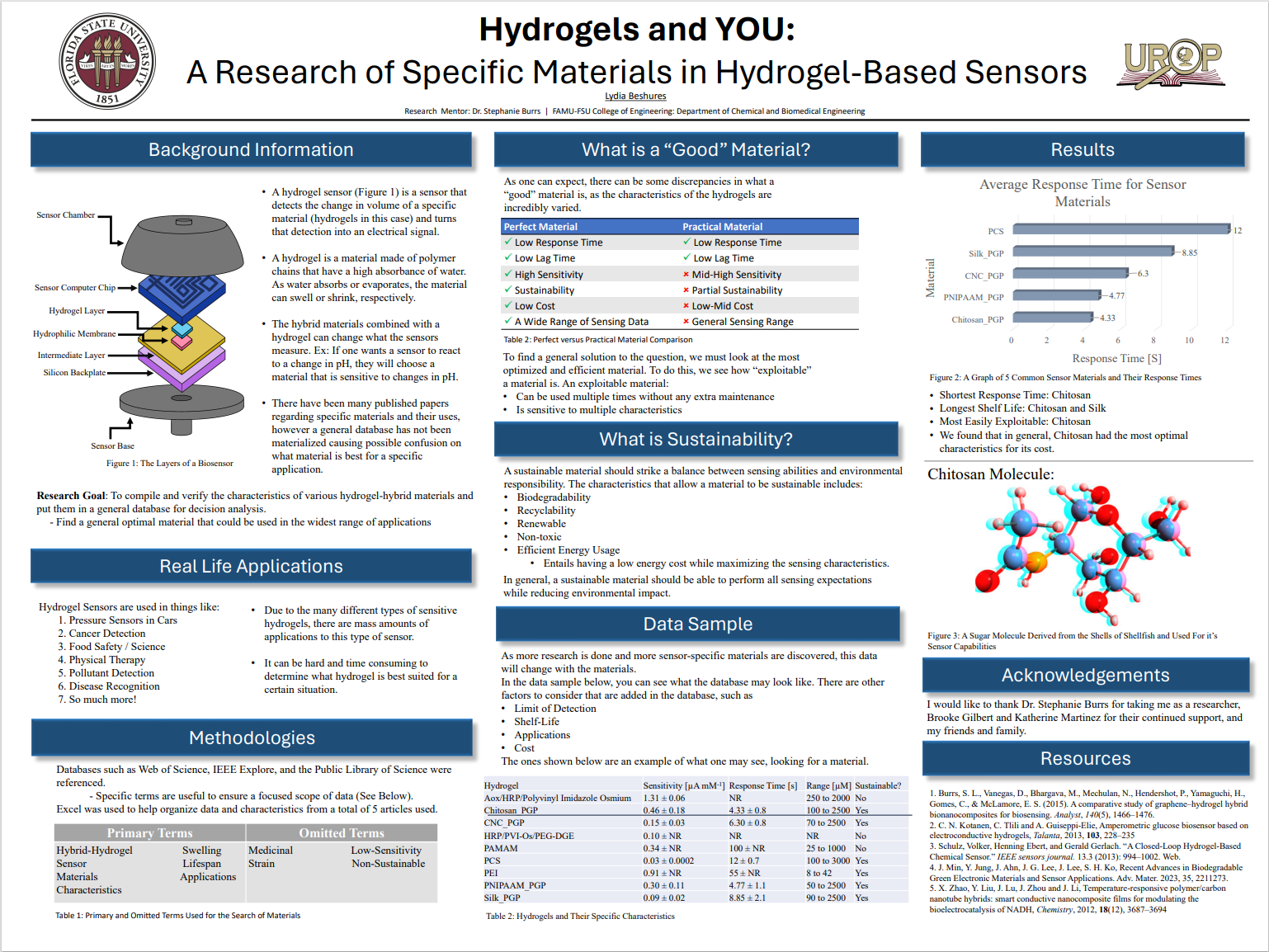Research Symposium
24th annual Undergraduate Research Symposium, April 3, 2024
Lydia Beshures Poster Session 5: 4:00 pm - 5:00 pm/329

BIO
I believe that hydrogel sensors are an overlooked yet necessary tool for any application. The aspect of these sensors that give them their variability, is the material they are using to detect changes. To choose an efficient and sustainable hydrogel, is to ensure proper sensing abilities without any environmental detriment. Since there is no real database showing different capabilities of materials, I am currently researching various hydrogels and their characteristics. This topic involves everyday systems and is one way I would like to contribute to science, to make a sustainable and reliable soceity for my loved ones.
Hydrogels and YOU: A Research of Specific Materials in Hydrogel-Based Sensors
Authors: Lydia Beshures, Stephanie BurrsStudent Major: Chemical Engineering
Mentor: Stephanie Burrs
Mentor's Department: Department of Chemical and Biomedical Engineering Mentor's College: Famu-FSU College of Engineering Co-Presenters:
Abstract
Hydrogel biosensors are commonly used in medicinal and food science applications but can be utilized in a wide range of applications such as physical therapy analysis, disease recognition, and pollutant detectors. With such diverse applications, the materials used to design the sensors must also be examined in order to suit the individuals’ specific needs. A hydrogel biosensor is a sensor that detects a change in volume of a hydrogel and sends an electrical signal once the swelling is detected. Most sensors use a material which swells and contracts under various chemical conditions. With numerous options out there, it can be difficult to determine which hydrogel is best for a particular sensor with its own set of specific conditions. Previous studies investigated different materials on a small scale, primarily focusing on one or two that are used for their application, yet no widely recognized accumulation of information has been released. Multiple sources were referenced regarding sensor conditions, materials, applications, and sustainability to compile data. The database is organized based on the most commonly desired conditions and their uses. Considerations on the sustainability and reusability of hydrogels in the sensors were also assessed in order to better understand the environmental impacts of specific materials. By investigating which characteristics of hydrogels are important in categorizing and selecting the type of hydrogels that would be best used in different sensor applications, it can then be determined how to utilize this information to design a decision analysis database.
Keywords: Hydrogels, sensors, materials


